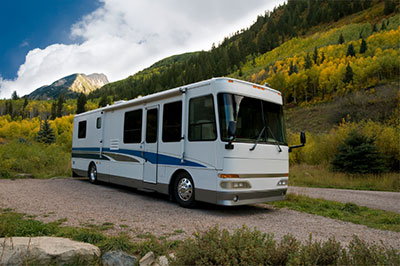4 Things You Should Know Before Buying An RV
Recreational vehicles can bring fun to a whole family or provide a good time for an individual. They provide numerous benefits on vacation – no hotel reservations, no packing your bags, having everything you need and when you need it. In fact, according to the Recreational Vehicle Industry Association, RV users can potentially save up to 61% on family vacation related expenses compared to the traditional route of travel and hotel accommodations. On top of all of that, RVs provide a sense of freedom on the open roads and are found to be enjoyable by many walks of life.
Now that you are tempted to go out an buy your own recreational vehicle, there are a few things to know as a first time RV buyer.
- Determine How Your RV Will Be Used. Recreational vehicles come in all shapes, sizes, and styles. Some may come equipped with certain features or have more space than others. You need to take special considerations about how you will be using your RV for most of the time and pick an RV that will match up the closest to fulfilling those needs.
- Determine The Right Type. There are four main “types” of recreational vehicles: towable, motorized, specialty, and park. Within each type you may find that certain ones will be better suited for your potential outings.
- Towable: This type of RV are pulled behind a vehicle – they do not have their own motor and they cannot be driven. This category includes folding campers, fifth wheel campers, conventional travel trailers, travel trailers with expandable ends, truck campers, and sport utility RVs.
- Motorized: These recreational vehicles are drivable and are commonly referred to as motorhomes. The front park looks similar to a truck cab that is connected to the rest of the camper. This category of RVs is one of the most well-known and is typically what most people imagine when they hear or think of “RV”.
- Specialty: These RV are modified to with special features to accommodate special interests. Modifications may include ramps, lifts, wider doors or windows, and various other attachments. An example of a specialty RV is a horse trailer RV. It allows for the RV owner to have their living arrangements plus room for their horses.
- Park Models: These RVs are great for long term stays at campsites or RV parks. They are designed to look and feel more like a home. In fact, they may look more like a manufactured home but require to be connected to water, sewer, and electricity like any other recreational vehicle.
- Set a Budget. Now that you know how you will most likely use your RV, you will need to determine how much you can afford each month or as a lump sum for your new RV. You may need to make a list of what the most important amenities your RV must have and amenities that would be nice to have but you can live without in order to make it more affordable.
- Get The Right Type Of Insurance. The type of insurance your RV will need will depend on how you plan to use it. If it will be for the occasional camping trip, you won’t need the same type of coverage as the individual who spends a full summer at their favorite RV park. If you are unsure of the coverage you should opt for, contact one of our RV insurance specialists to help walk you through your options.

